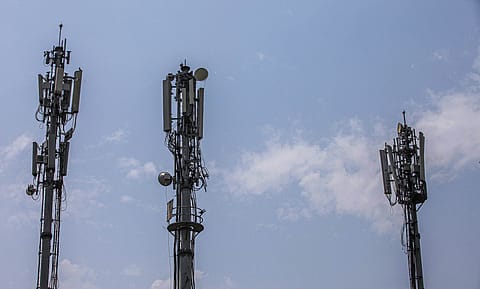TRAI targets spam with new rules
During a JCOR meeting organised by TRAI, the telecom regulator emphasised the necessity for a collaborative effort to tackle the spam problem

The Telecom Regulatory Authority of India (TRAI) has directed the Reserve Bank of India (RBI), various sector regulators, and government agencies to enforce mandatory whitelisting or registration of internet links, Android application packages (APKs), and callback numbers included in text messages by September 1 to combat the issue of spam messages and calls.
URLs are website addresses or unique internet resource locations, while APKs are executable files needed to install and run Android apps.
During a Joint Committee of Regulators (JCOR) meeting organised by TRAI, the telecom regulator emphasised the necessity for a collaborative effort to tackle the spam problem. “In his address, TRAI chairman Shri Anil Kumar Lahoti stressed the need for a joint effort to tackle the problem of spam messages and calls,” it states.
This move is expected to reduce spam and potential fraud, as many users inadvertently click on links that serve as phishing tools for data theft.
The Digital Consent Acquisition (DCA) system gives digital consent. “DCA system will be of great value to the entities, not only for messaging services, but also for voice calls. It permits the delivery of messages and calls to the recipients despite their DND preference,” it adds.
Recommended Stories
Currently, telecom companies receive headers and templates from businesses, but they will now also need to verify and submit the content before sending it to customers. The JCOR, established in 2022 to address regulatory challenges in the digital age and combat telecom spam and fraud, was represented by officials from the RBI, Pension Fund Regulatory and Development Authority, Insurance Regulatory and Development Authority, Securities and Exchange Board of India, and various ministries.
The release reveals that TRAI urged regulators to enforce a directive to transition existing telemarketers to use the 140 series numbers designated for commercial purposes. These numbers are also required to migrate to Digital Ledger Technology (DLT) platforms managed by telecom service providers to enhance monitoring and control. The 160 series is reserved exclusively for service and transactional calls, it adds.
(INR CR)
Additionally, TRAI discussed enforcing strict monitoring and disconnection of bulk connections used by businesses for spam calls. "There is an urgent need to take firm action, without further delay, on spammers who are using PRI/ SIP/ bulk connections for making promotional voice calls, robo calls, pre-recorded calls," TRAI states.
The regulator states that telecom operators are also required to establish systems to ensure message traceability from sender to recipients.
PRI, or Primary Rate Interface, is a telecommunications standard designed to transmit both voice and data between a network and a user. It utilises physical copper wires to establish a digital connection between businesses and the public switched telephone network (PSTN). Many businesses use SIP/PRI lines to make commercial voice calls, often exceeding the limits set by TRAI regulations. These businesses need to transition to the designated 140 series numbers for their promotional calls.
Last week, telecom operators were directed by TRAI to implement a two-year blacklist on any entity that misuses bulk connections for spam calls. This directive followed a high-level meeting on August 8, 2024, with regulatory heads from major telecom companies including Airtel, BSNL, Reliance Jio, Tata Teleservices, Vodafone Idea, and Quadrant Televentures.